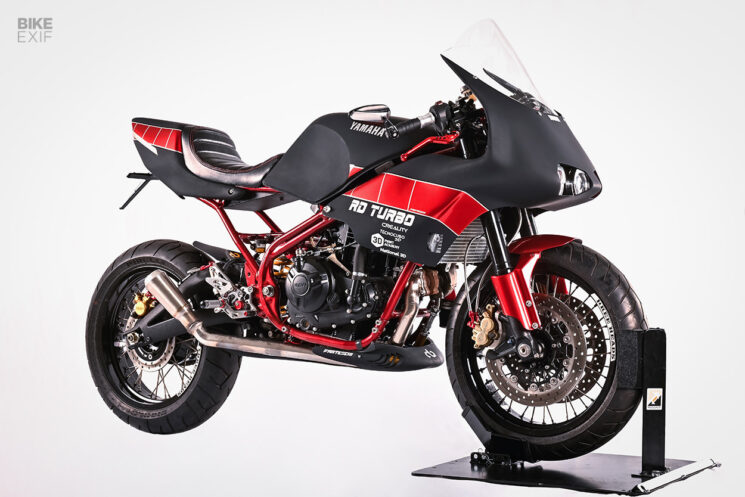
Any conversation about the good old days of motorcycling will eventually include the words “they don’t build ’em like they used to.” And then someone will mention the Yamaha RD350.
The fiery two-stroke was loved when it was released, got even wilder as it evolved, and has been missed ever since it was discontinued. Given the motorcycle industry’s current obsession with nostalgia, the time is ripe for a modern take on the iconic RD—but there are no signs that Yamaha plans to resurrect it. After all, ever-tightening emissions laws have put the kibosh on two-stroke development.
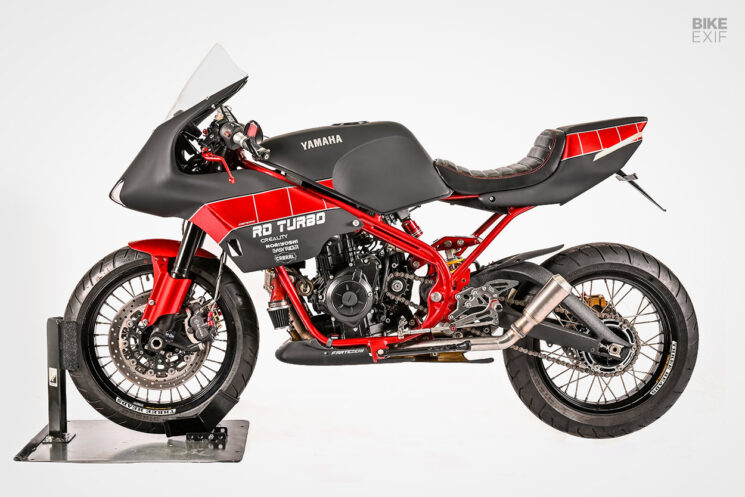
Custom builder Renato Frateschi remembers the RD350 well—particularly the later RD350 YPVS F2, which made waves in his native country of Brazil when it was released in 1987. (If you don’t know it, it was called the RZ350 in the USA.) With over 60 horses on tap and a paltry curb weight, it was an instant hit.
Like many, Renato misses the RD350. So when he and a client couldn’t quite settle on a direction for a custom build, he came up with a radical proposal. “Look, I have an RD350 chassis and fuel tank here,” Renato told his client, “and I think we can do something amazing with it.”
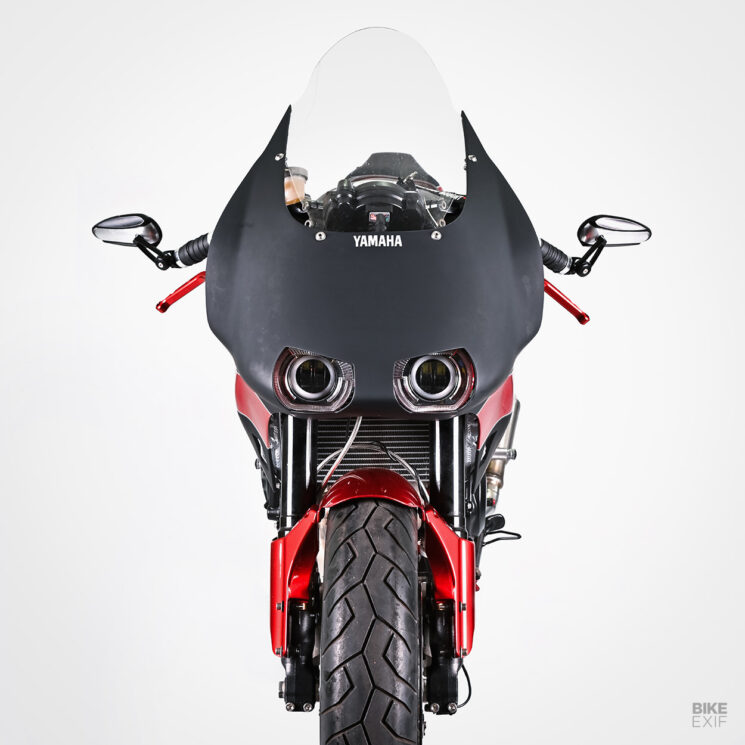
The client agreed, and Renato set about sourcing an engine for the bike. Since the cost of an original, good condition RD350 power plant would have wrecked the budget, the idea was to create a modern tribute to the iconic Yamaha. So he settled on using the four-stroke, twin-cylinder mill from the entry level Yamaha R3 sportbike.
Housing the modern parallel twin in a vintage RD350 frame took some doing, but that wasn’t Renato’s only challenge. Those following the project were quick to point out that the R3’s performance is a long way off from the RD350’s. So Renato did the only logical thing he could: he added a turbocharger.
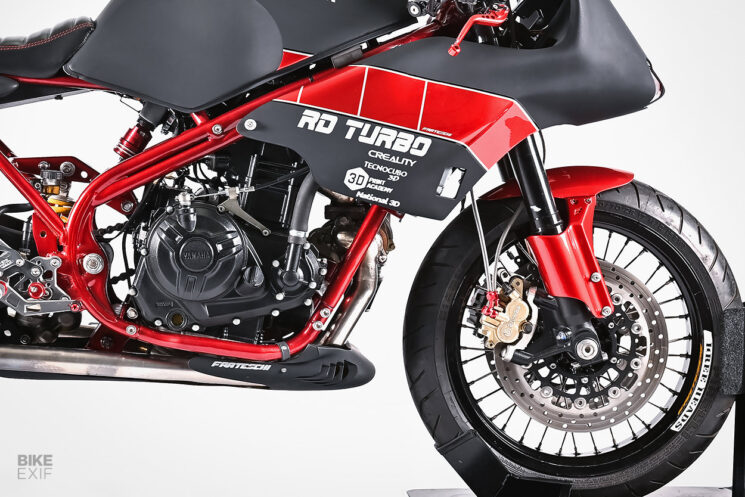
A small turbocharger was imported from Japan, and mounted discreetly just in front of the engine’s exhaust ports. Renato put it there to integrate it into the bike’s design—but the placement also helped to minimize turbo lag.
Next, he had to find space for the air intake, injectors, sensors, and an ECU chip that would allow him to tune the bike (via smartphone). So he designed and 3D-printed a tidy box to house everything. The R3 engine still looks petite, but now packs a sneaky punch.
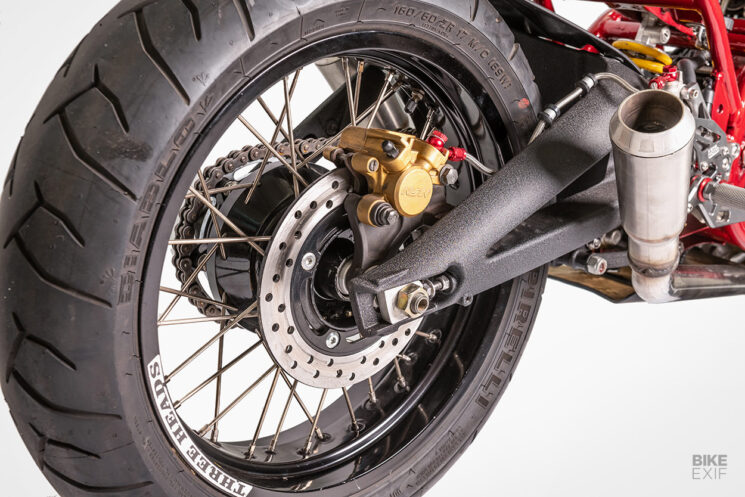
As for the chassis, Renato performed a slew of modifications to accommodate the engine, and to reinforce the frame for a more secure ride. He also managed to pull it off without ruining the RD350’s classic lines.
The modern theme continues with a host of upgrades to the Yamaha’s running gear. It now rolls on 17” wheels (unlike the RD350’s original 18” units), with a Triumph Daytona 675 swingarm and shock out back. The front brake calipers are Brembo units; they’re mounted on CNC-machined aluminum spacers, and pinch 300 mm discs.
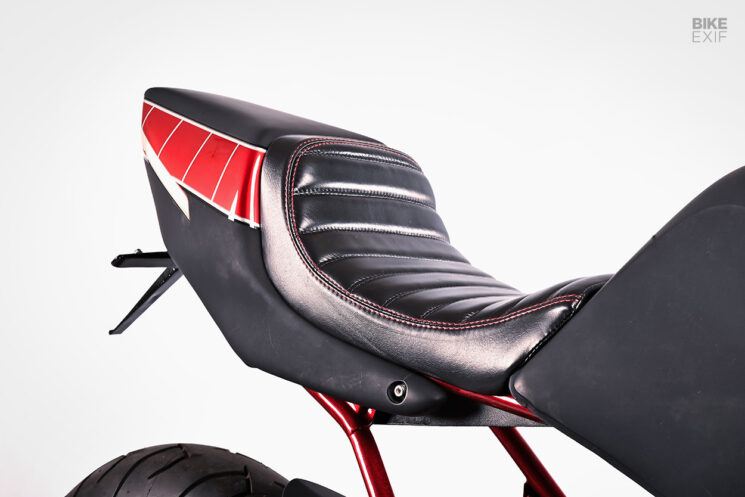
For the bodywork, Renato turned to digital methods to get everything just right. First, he created a rendering of the full bike, so that the customer could see exactly what he was buying into. Once that was signed off, the fairing, tail section, front fender and belly pan were all 3D printed in a tough ABS plastic.
The tail piece takes inspiration from Yamaha’s iconic race-spec TZ series, and features a unique wraparound taillight design. The front end echoes the design of the Suter MMX 500 race bike, while twin headlights pay homage to the 1987 RD350 YPVS F2. Sitting center stage is the original RD fuel tank, modified to accept the R3’s fuel pump.
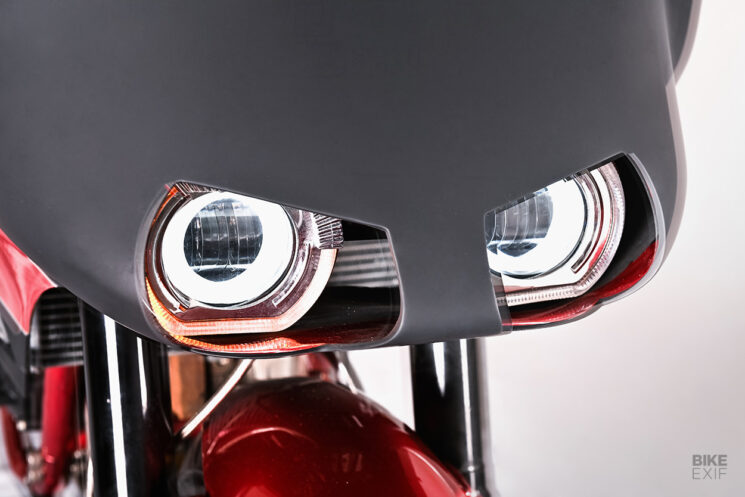
Finishing kit includes a CNC-machined top yoke, with new clip-ons, grips and bar-end mirrors. The exhaust system is custom; its twin mufflers offer a small hat tip to the RD350’s twin pipes.
Renato has nicknamed his creation ‘RD Turbo,’ and wrapped it in a livery to match. Glossy red ‘speed blocks’ sit on a matte black base; another nod to the bike that inspired this build.
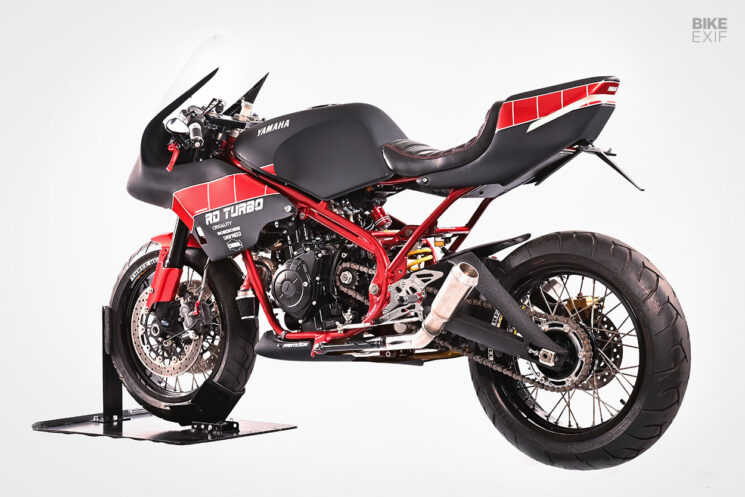
It took Renato two years to build the RD Turbo, stretching the limits of his and his suppliers’ skills. There were hurdles aplenty—from figuring out how to mate a new engine to an old frame, to 3D-printing parts with an unusually large surface areas.
But in the end, it all came together—proving that it is possible to build a modern take on the legendary RD350.
Frateschi Garage Facebook | Instagram | Images by Gustavo Epifanio
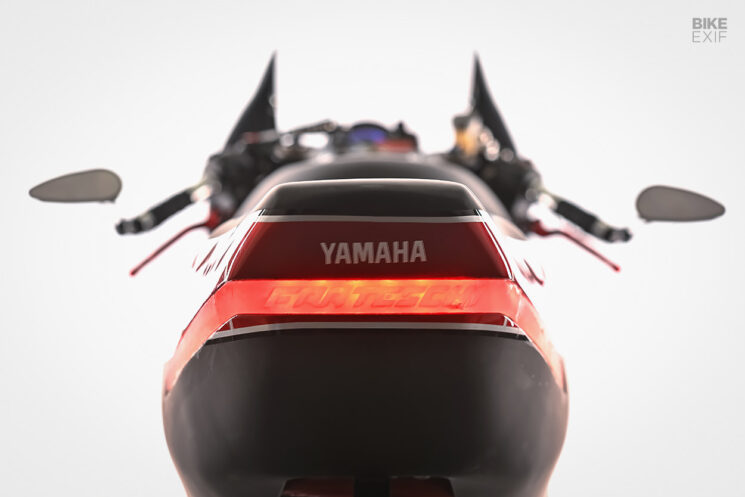
from Bike EXIF https://ift.tt/MZRnQBi
No comments:
Post a Comment